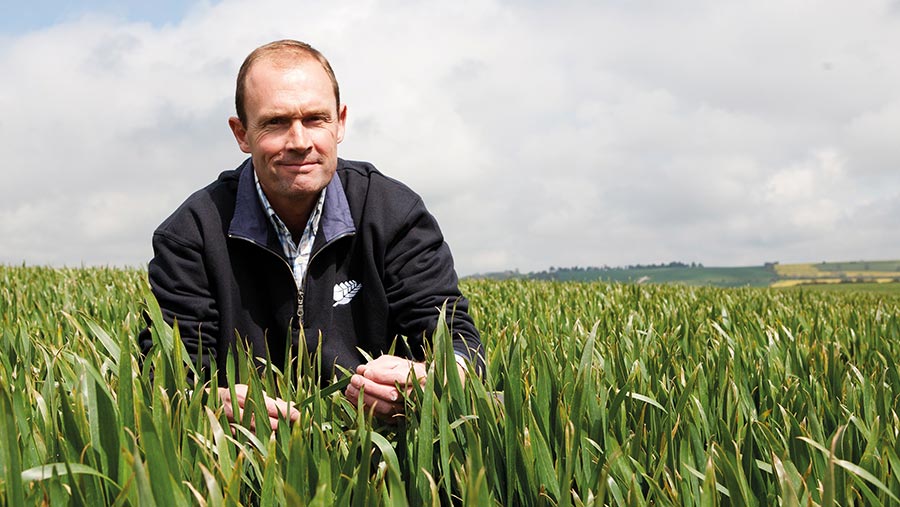Farmer Focus: All varieties should be BYDV tolerant
 Andy Barr © Alexandra Joseph
Andy Barr © Alexandra Joseph This year’s Cereals event was the best ever – I won a bottle of whisky!
It is produced by the Bruichladdich distillery from Bere barley that is an ancient race of the crop only produced in tiny quantities in the northernmost Scottish isles.
See also: The dos and don’ts of farm-saved seed
It has been found to have unique abilities to extract micronutrients from poor soils and is now being crossed into modern lines by the International Barley Hub (IBH) at the James Hutton Institute.
If I’m completely honest I struggle to discern the “notes of zesty lime and green apple”, but I do love a good whisky.
The IBH is also finding agronomic traits in thousands of Ethiopian barley races that have been lost in today’s elite varieties, which may help us produce food in more challenging times.
One crop trait I was looking for at the event was that of barley yellow dwarf virus (BYDV) tolerance, so I was pleased to discover that there is a variety called Buzzard that has yield and agronomic characteristics up with other leading hybrid barleys and is sold at no extra cost to these.
Trying to sell poorer performing varieties at a premium equivalent to spraying insecticide is just going to put people off and this is far too an important issue to get wrong again.
There is an insect population crisis that will cost the human race dearly if we don’t address it immediately and making all varieties BYDV tolerant as a matter of course should be the aim in order to minimise the use of broad spectrum insecticides.
With better genetics and exciting technology we can really slash our synthetic inputs and benefit the environment. Also on show was an automated disease spore trap and DNA sampler born out of research at Rothamsted.
It detects the likes of septoria, rusts and sclerotinia at their first arrival, before widespread plant infection, and immediately sends a message to your phone, hopefully giving confidence to avoid prophylactic template fungicide sprays.


